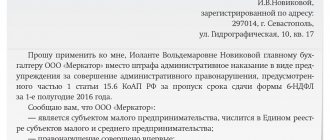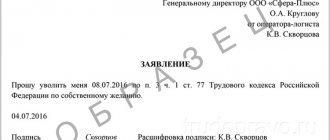The Constitutional Court indicated that it is impossible to dismiss teachers only on the basis of Article 46 of the Federal Law “On Education”.
The publication is relevant to students of advanced training courses in the following areas:
- Pedagogy
- State and municipal administration
- Jurisprudence
Dismissal for immoral act
First of all, let’s clearly define what kind of offense can be considered immoral and whether any employee of an educational organization can be fired on this basis.
The Labor Code does not define an immoral offense; the employer independently determines whether a particular offense is such, based on his own concepts of morality. However, in any case, the following will be considered immoral:
- drinking alcoholic beverages;
- fights;
- insults and obscene language;
- lewd or other actions that negatively affect others.
For example, the Municipal Educational Institution of Secondary School dismissed two teachers under clause 8 of Part 1 of Art. 81 of the Labor Code of the Russian Federation for a conflict based on hostility towards each other. Believing that the conflict was not an immoral offense, one of the teachers went to court demanding reinstatement. However, the court, when considering the case, found that during the conflict, teachers repeatedly committed verbal insults during breaks, which at times escalated into brawls. All this happened in front of the students, therefore, immoral acts were committed. Therefore, the demands were refused ( Appeal ruling of the Moscow Regional Court dated 04/03/2012 in case No. 33-6057/2012 ).
Let us note that forcing students to lie can also be regarded as an immoral offense and in such a situation, the dismissal of an employee of an educational organization performing educational functions will be legal ( Appeal ruling of the Moscow City Court dated June 20, 2014 in case No. 33-22169 ).
Thus, any violation of moral principles and socially accepted norms of behavior can be considered an immoral offense.
But in addition to determining the immorality of the act committed, the employer should clearly understand that not every employee can be fired for it. Thus, the Plenum of the Armed Forces of the Russian Federation in Resolution No. 2 of March 17, 2004 “On the application by the courts of the Russian Federation of the Labor Code of the Russian Federation” [1] indicated that only those workers who are engaged in educational activities, for example teachers, educational teachers, can be fired for committing an immoral act. institutions, vocational training masters, teachers of children's institutions, and regardless of where the immoral offense was committed - at the place of work or at home ( paragraph 46 ).
Of course, the educational function, in addition to teachers and teachers, is also carried out by coaches of sports sections, heads of creative circles, sections and studios, as well as employees who are engaged in educational work in addition to their official duties, for example, deputies for educational work. Thus, the Altai Regional Court refused to reinstate the director of the MCOU secondary school. The director believed that he did not belong to employees performing educational functions, since he exercised leadership and did not teach lessons. However, the court indicated that the fact that the plaintiff does not teach lessons, that is, is not a direct participant in the educational process, does not indicate his failure to perform educational functions. The school director has direct contact with students, applies educational measures, therefore, he performs educational functions ( Appeal ruling of the Altai Regional Court dated August 27, 2014 in case No. 33-6014/14 ).
So, who can be fired for committing an immoral act and what is considered such, we figured it out. Now about how to carry out the dismissal itself. Remember that dismissal under clause 8, part 1, art. 81 of the Labor Code of the Russian Federation will be legal if three circumstances occur simultaneously:
- performance of educational functions by the employee;
- committing an immoral offense;
- incompatibility of the committed offense with the continuation of work related to the performance of educational functions.
Please note:
If an immoral act is committed at the place of work and in connection with the performance of job duties, then such an employee may be dismissed subject to the procedure for applying disciplinary sanctions established by Art. 192 , 193 Labor Code of the Russian Federation . If an immoral offense is committed outside the place of work or at the place of work, but not in connection with the performance of work duties, the employment contract under clause 8 of part 1 of art. 81 of the Labor Code of the Russian Federation can also be terminated, but no later than a year from the date of discovery of the offense ( clause 47 of Resolution No. 2 ).
The procedure for terminating an employment contract under clause 8, part 1, art. 81 of the Labor Code of the Russian Federation is as follows:
- The fact of committing an immoral act is recorded - a report or act is drawn up in the presence of witnesses. These documents need to describe in as much detail as possible the circumstances under which the offense was committed and the employee’s actions themselves.
- We demand an explanatory statement from the violator of moral rules, preferably in writing. Remember that the employee has two working days to explain. If after this time no explanations are received, a corresponding act is drawn up.
- We are creating a commission to investigate the fact of committing an immoral act. It is this commission that will fully indicate in the act all the circumstances, explanations, testimony of witnesses and come to a conclusion whether the employee committed an offense or not.
- We make a decision to take disciplinary action against the employee. Let us remind you that if the offense is minor, and the employee is valuable, it is not necessary to fire him - you can limit yourself, for example, to a reprimand.
- We issue an order: if a decision is made to dismiss an employee - in form T-8[2]. Remember that an order can be issued if no more than one month has passed since the discovery of the offense ( Part 3 of Article 193 of the Labor Code of the Russian Federation ). The specified period does not include the time the employee is ill, on vacation, or absent for other legal reasons (see example on page).
- We formalize the dismissal - entries are made in the personal card, work book, all amounts are paid to the employee, copies of documents are issued.
Dismissal of an experienced teacher due to lack of professional education
Last year, a teacher who worked as a kindergarten teacher for 11 years was dismissed in accordance with the requirements of Article 46 of the Law “On Education of the Russian Federation.” This teacher did not have completed professional education.
The teacher was hired 11 years ago on the basis of incomplete pedagogical education. For 11 years, the teacher underwent certification and qualification.
But after the prosecutor’s office began to check all educational institutions for compliance with the requirements of Article 46 of the Federal Law “On Education in the Russian Federation,” the director fired the teacher.
Is it possible to fire a teacher who has experience but no pedagogical education?
The employee filed a lawsuit demanding reinstatement of the preschool teacher and compensation for damages for illegal dismissal. The courts did not support the plaintiff, considering that the dismissal was legal.
But this did not stop the teacher. He appealed to the Constitutional Court of the Russian Federation with a demand: to recognize the provisions of Art. 46 contrary to the Constitution of the Russian Federation.
The emergence of restrictions on engaging in certain types of work activities
Law No. 387-FZ [3] introduced a new article into the Labor Code. 351.1 , which establishes restrictions on employment in the field of education, upbringing, development of minors, organization of their recreation and health improvement. In addition, Art. 331 Labor Code of the Russian Federation . According to these standards, the following persons are not allowed to engage in teaching activities:
- have or have had a criminal record, are or have been subject to criminal prosecution (except for persons against whom criminal prosecution was terminated on rehabilitative grounds) for crimes against life and health, freedom, honor and dignity of the individual (with the exception of illegal placement in a psychiatric hospital, slander and insult ), sexual integrity and sexual freedom of the individual, against family and minors, public health and public morality, the foundations of the constitutional order and state security, as well as against public safety;
- having an unexpunged or outstanding conviction for intentional grave and especially grave crimes.
Thus, as soon as the management of an educational organization learns about the existence of restrictions on engaging in certain types of work activities established by the Labor Code of the Russian Federation and other federal laws that exclude the possibility of an employee fulfilling his duties under an employment contract, the employment contract is subject to termination due to circumstances beyond the control of the parties - by clause 13, part 1, art. 83 Labor Code of the Russian Federation .
When dismissing on this basis, it should be taken into account that dismissal on this basis can only be made after receiving an official certificate from the Ministry of Internal Affairs.
For your information
The administrative regulations for the provision of public services for issuing certificates of the presence (absence) of a criminal record and (or) the fact of criminal prosecution or the termination of criminal prosecution were approved by Order of the Ministry of Internal Affairs of the Russian Federation dated November 7, 2011 No. 1121 .
You should not think that if a teacher was convicted of crimes named in Art. 331 of the Labor Code of the Russian Federation , before the entry into force of Law No. 387-FZ , then there is no need to dismiss the employee. As judicial practice confirms, it does not matter when the teacher was convicted, the fact itself is important. So, P., believing that he was fired from the MBOU “Youth Sports School” illegally, went to court. He justified the requirements by the fact that the restrictions provided for in Part 2 of Art. 331 and art. 351.1 of the Labor Code of the Russian Federation for the implementation of teaching activities, in this case are not subject to application, since he was hired before the introduction of these restrictions into labor legislation.
Meanwhile, the court found that in 2005 P. was convicted under Part 1 of Art. 111 of the Criminal Code of the Russian Federation and the criminal record has been expunged. Taking into account the legal position set out in the Resolution of the Constitutional Court of the Russian Federation dated July 18, 2013 No. 19-P , the court noted that the provisions of these articles of the Labor Code provide for an indefinite and unconditional ban on engaging in professional activities in the areas specified in these provisions for persons who have a criminal record or whose criminal record has been withdrawn or expunged, those found guilty. Therefore, the dismissal was recognized as legal and justified ( Appeal ruling of the Supreme Court of the Republic of Mordovia dated July 22, 2014 in case No. 33-1253/2014 ).
In addition, some heads of educational organizations “in the old fashioned way” believe that this basis for dismissal applies only to those employees who directly carry out teaching or educational activities. That is, a janitor, watchman, supply manager cannot be fired under clause 13, part 1, art. 83 Labor Code of the Russian Federation . However, the current edition of the Labor Code of the Russian Federation is formulated in such a way that the restriction is established not in relation to a specific labor function, but in relation to the field of activity. This means that on this basis it is possible to dismiss a watchman, a cleaner, and other workers who are not directly involved in teaching or educational work, that is, the restriction applies to all personnel of educational organizations, including technical and support staff, since they also carry out labor activities in the above areas ( appeal rulings of the Judicial Collegium for Civil Cases of the Chelyabinsk Regional Court dated July 24, 2014 in case No. 11-7669/2014 , Kurgan Regional Court dated June 13, 2013 in case No. 33-1596/2013 , Krasnoyarsk Regional Court dated August 20, 2012 in case No. 33-6847/2012 , etc.).
However, simply firing a teacher will not work. As with dismissal for committing an immoral offense, a certain procedure must be followed. In particular, termination of the employment contract under clause 13, part 1, art. 83 of the Labor Code of the Russian Federation is allowed if it is impossible to transfer the employee with his written consent to another job available to the employer (both a vacant position or work corresponding to the employee’s qualifications, and a vacant lower position or lower-paid job), which the employee can perform taking into account his state of health. The employer is obliged to offer all vacancies available in the local area that meet the specified requirements. The employer is obliged to offer vacancies in other localities if this is provided for by the collective agreement, agreements, or employment contract.
Commentary on Article 336 of the Labor Code of the Russian Federation
The rector, vice-rector, dean of the faculty, head of the branch (institute), federal state educational institution of higher professional education, who has not received consent to extend the term of his powers and has not given consent to be transferred to another position corresponding to his qualifications, upon reaching the age of 65 years, is subject to dismissal.
The specificity of termination of an employment contract under Article 336 of the Labor Code is that it does not require the mandatory participation of an elected trade union body.
Article 336 of the Labor Code indicates that the grounds for termination of an employment contract with teaching staff may also be determined by other federal laws. In this case, we are talking about the requirements provided for by the Laws on Education and Higher Professional Education, taking into account the prohibitions on the right to carry out teaching activities determined by Article 331 of the Labor Code.
This is important to know: Supplementary agreement on the extension of a fixed-term employment contract: sample 2021
An employment contract with employees of educational institutions may be terminated due to insufficient qualifications, confirmed by certification results, for positions for which the tariff and qualification characteristics provide for the presence of qualification categories. The procedure for terminating an employment contract due to insufficient qualifications of an employee is determined by the academic council of the university on the basis of clause 14 of the Regulations on the procedure for filling positions of scientific and pedagogical workers of universities, approved by Order of the Ministry of Education of the Russian Federation of November 26, 2002 N 4114. For positions of teaching staff of higher educational institutions The presence of qualification categories is not provided for by the tariff and qualification characteristics.
An employment contract to fill the position of a scientific and pedagogical worker in a higher educational institution can be concluded for an indefinite period, as well as for a period determined by the parties to the employment contract.
The conclusion of an employment contract to fill the position of a scientific and pedagogical worker in a higher educational institution, as well as the transfer to the position of a scientific and pedagogical worker, is preceded by election through a competition to fill the corresponding position.
A competition for filling the position of a scientific and pedagogical worker occupied by an employee with whom an employment contract has been concluded for an indefinite period is held once every five years.
It is permissible to conclude an employment contract to fill the position of a scientific and pedagogical worker in a higher educational institution without holding a competition for filling the corresponding position when hiring part-time work or in newly created higher educational institutions before the start of work of the academic council - for a period of no more than one year, and for replacement a temporarily absent employee whose place of work is retained in accordance with the law - until this employee returns to work, in order to maintain the continuity of the educational process.
In addition, there may not be a competition to replace:
— positions of dean of the faculty and head of the department;
— positions of scientific and pedagogical workers occupied by pregnant women;
— positions of scientific and pedagogical workers held under an employment contract concluded for an indefinite period by women with children under three years of age.
With an employee holding the position of scientific and pedagogical worker under an employment contract concluded for an indefinite period, based on the results of the competition provided for in part three of this article, who was not elected to the position or who did not express a desire to participate in the said competition, the employment contract is terminated in accordance with paragraph 4 of the article 336 TK.
A new employment contract may not be concluded if an employee is elected through a competition to fill the position of a scientific and pedagogical worker previously occupied by him under a fixed-term employment contract. In this case, by agreement of the parties, the fixed-term employment contract with the employee is extended for a period of no more than five years or for an indefinite period.
When transferring to the position of scientific and pedagogical worker as a result of election through competition to the corresponding position, the validity period of the employment contract with the employee may be changed by agreement of the parties, concluded in writing, for a period of no more than five years or for an indefinite period.
Before the expiration of the election period under the competition provided for in Part 3 of Article 332 of the Labor Code, or during the term of a fixed-term employment contract, in order to confirm the employee’s compliance with the position of scientific and pedagogical worker held by him, certification may be carried out. The regulations on the procedure for certification of employees holding scientific and pedagogical positions are approved in the manner established by the Government of the Russian Federation.
In accordance with Article 332 of the Labor Code, the positions of dean of the faculty and head of the department are elective. The procedure for holding elections to these positions is established by the statutes of higher educational institutions.
The positions of rector, vice-rectors, and heads of branches (institutes) in state and municipal higher educational institutions are filled by persons under the age of sixty-five years, regardless of the time of conclusion of employment contracts. Persons holding these positions, upon reaching the age of sixty-five years, are transferred, with written consent, to other positions corresponding to their qualifications.
Taking into account the proposal of the academic council of a state or municipal higher educational institution, the founder has the right to extend the rector’s tenure in his position until he reaches the age of seventy years.
A fixed-term employment contract is concluded with the vice-rectors of a higher educational institution. The expiration date of a fixed-term employment contract concluded with the vice-rector coincides with the expiration date of the rector’s powers.
This is important to know: Extension of the term of an employment contract with a foreign citizen
The term of office of a vice-rector or head of a branch (institute) until they reach the age of seventy years can be extended by the rector, upon the proposal of the academic council of a state or municipal higher educational institution.
The use of educational methods related to violence against the individual
According to paragraph 9 of Art. 13 of the Federal Law of December 29, 2012 No. 273-FZ “On Education in the Russian Federation”, the use of teaching and educational methods and means, educational technologies that harm the physical or mental health of students in the implementation of educational programs is prohibited. Therefore, the Labor Code provides another basis for the dismissal of teaching staff - clause 2, part 1, art. 336 (use, including one-time use, of educational methods associated with physical and (or) mental violence against the personality of a student or pupil).
Which methods of education are considered physical or mental violence? We believe that the former include beatings and any other actions that cause pain, forced deprivation of freedom, food, drink, etc. The latter include threats, deliberate isolation, insults and humiliation, making excessive demands, systematic and unfounded criticism, demonstrative negative attitude towards the student, etc.
Here the employer will have to conduct an investigation to determine what kind of violence was used against students or pupils and whether it occurred at all. In addition, it is necessary to stock up on evidence - statements from parents, witness statements - and conduct an official investigation. If this is not done, the restoration of the tyrant teacher cannot be avoided. For example, the Volgograd Regional Court reinstated D., who was fired for “moral insult” at the State Budget Educational Institution “PU”: during class she hit student A. in the leg with a pointer, hit student B. in the face, and addressed P. with gross obscene language swearing. The dismissal order was issued on the basis of explanatory notes from students, statements, and complaints from parents. Explanations from D. were requested. However, the court satisfied D.’s demands and reinstated her at work, since the State Budget Educational Institution “PU” did not conduct an official investigation, therefore, the court was unable to establish specific facts of D.’s use of physical and psychological violence against students ( Appeal ruling of the Volgograd Regional Court dated April 11, 2014 to case No. 33-3888/14 ).
This reason for dismissal does not apply to disciplinary sanctions, but an internal investigation will still have to be conducted.
Let's give an example of an entry in the work book about dismissal on the basis in question.
| № records | date | Information about hiring, transfer to another permanent job, qualifications, dismissal (indicating reasons and reference to the article, clause of the law) | Name, date and number of the document on the basis of which the entry was made | ||
| number | month | year | |||
| 1 | 2 | 3 | 4 | ||
| 510 | 11 | 11 | 2014 | Employment contract terminated | Order dated June 22, 2012 |
| due to single use | No. 21 | ||||
| education methods related | |||||
| with physical violence against a person | |||||
| student, paragraph 2 of Article 336 | |||||
| Labor Code | |||||
| Russian Federation. | |||||
| Secretary Pisakina | |||||
| MP | |||||
Termination of an employment contract with teaching staff
General grounds for termination of an employment contract specified in Art. 77 of the Labor Code of the Russian Federation, as well as the grounds given in Art. Art. 81, 83, 84 of the Labor Code of the Russian Federation, in the presence of appropriate circumstances, may also be grounds for termination of employment contracts with teaching staff.
An employment contract with teaching staff, whose labor (official) responsibilities directly include educational functions, can be terminated on the basis provided for in clause 8, part 1, article 81 of the Labor Code of the Russian Federation - the commission by an employee performing educational functions of an immoral act incompatible with continuation of this work.
In addition to the grounds for termination of an employment contract provided for in Chapter 13 of the Labor Code of the Russian Federation, in relation to teaching staff of general education institutions, such grounds are:
Expert opinion
Polyakov Pyotr Borisovich
Lawyer with 6 years of experience. Specialization: civil law. More than 3 years of experience in drafting contracts.
1) repeated gross violation of the charter of an educational institution within one year (clause 1 of article 336 of the Labor Code of the Russian Federation, clause 1 of clause 4 of article 56 of the Law on Education);
This is important to know: Irregular working hours in an employment contract: sample 2021
2) the use, including one-time use, of educational methods associated with physical and (or) mental violence against the personality of a student (clause 2 of Article 336 of the Labor Code of the Russian Federation, clause 2 of clause 4 of Article 56 of the Law on Education) .
The order (instruction) on termination of the employment contract, work record book and personal card indicate, as a basis for termination of the employment contract, a repeated violation of the Charter of the educational institution during the year and provide a reference to either clause 1 of Article 336 of the Labor Code of the Russian Federation, or to clause 1 of clause .4 Article 56 of the Law on Education. In this case, a reference to the Labor Code of the Russian Federation is preferable.
Termination of an employment contract is carried out in the manner established by Art. 84.1 Labor Code of the Russian Federation. On the last working day you need to:
- issue a work book to the employee. Upon receipt, the employee must sign in the Book of Movement of Work Books and their inserts, as well as in the personal card. If the employee is absent or refuses to receive a work book, the employer must send him a notice that he must appear for the work book or agree to have it sent by mail;
— pay the employee wages for the period worked and other amounts due to him, including compensation for unused vacation (if any).
Dismissal under clause 2 of Article 336 of the Labor Code of the Russian Federation is possible if the following methods are used (including one-time) by a teaching worker to students or pupils:
- physical violence, physical force, forced physical influence. A manifestation of physical violence can be beatings and any other actions that cause pain, forced deprivation of freedom, food, drink, etc.;
- mental violence. Manifestations of mental violence include threats, deliberate isolation, insults and humiliation, excessive demands, systematic unfounded criticism, etc.
Termination of an employment contract is carried out in the manner provided for in Art. 84.1 Labor Code of the Russian Federation. On the last working day you need to:
- issue a work book to the employee. Upon receipt, the employee must sign in the Book of Movement of Work Books and their inserts, as well as in the personal card. If the employee is absent or refuses to receive a work book, the employer must send him a notice that he must appear for the work book or agree to have it sent by mail;
— pay the employee wages for the period worked and other amounts due to him, including compensation for unused vacation (if any).
Registration of dismissal
According to the general rules, dismissal is formalized by order ( Article 84.1 of the Labor Code of the Russian Federation ). The basis for issuing such an order will be upon dismissal:
- according to clause 8, part 1, art. 81 of the Labor Code of the Russian Federation - an official note or act of recording the fact of immoral behavior of a teaching employee, an explanatory note of the offender or an act of refusal to give an explanation, an act of official investigation;
- according to clause 13, part 1, art. 83 of the Labor Code of the Russian Federation - a certificate from the Ministry of Internal Affairs about the presence of a criminal record or the fact of criminal prosecution, possibly an order from the prosecutor;
- according to clause 2, part 1, art. 336 of the Labor Code of the Russian Federation - complaints from parents and students in writing, an explanatory note from a teaching staff, an investigation report.
The order to dismiss an employee of an educational organization must be familiarized with signature. In the event that an order to terminate an employment contract cannot be brought to the attention of the employee or he refuses to familiarize himself with it against signature, a corresponding entry is made on the order (instruction) ( Part 2 of Article 84.1 of the Labor Code of the Russian Federation ).
Based on the order, an entry is made in the work book and personal card.
Then, on the last working day, it is necessary to issue a work book to the person being dismissed and make payments to him in accordance with Art. 140 Labor Code of the Russian Federation . Upon written application by the employee, the employer is also obliged to provide him with duly certified copies of documents related to work.
Summarize
In conclusion, let us remind you that since dismissal for the reasons considered quite often ends in a labor dispute, you need to prepare all the documents, as well as stock up on sufficient evidence of the employee committing an immoral offense or using educational methods related to violence against the personality of students. After all, Resolution No. 2 places the responsibility on the employer to prove the existence of a legal basis for dismissal and compliance with the established procedure for dismissal ( clause 23 ).
[1] Next – Resolution No. 2.
[2] Approved by Resolution of the State Statistics Committee of the Russian Federation dated January 5, 2004 No. 1 “On approval of unified forms of primary documentation for labor accounting and its payment.”
[3] Federal Law of December 23, 2010 No. 387-FZ “On Amendments to Article 22.1 of the Federal Law “On State Registration of Legal Entities and Individual Entrepreneurs” and the Labor Code of the Russian Federation.”








